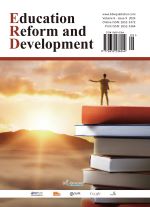Abstract
With the rapid development of information technology, the concept of “Internet +” has gone deep into all walks of life, including the field of education. Especially in university physics experiment teaching, the introduction of “Internet +” not only changes the traditional teaching mode but also brings a lot of far-reaching significance. This paper will discuss in detail the significance of “Internet +” in college physics experiment teaching from the aspects of improving teaching efficiency, promoting personalized learning, enhancing students’ self-learning ability, improving teaching resource sharing and promoting teaching reform. Then, through the use of innovative teaching methods, updating teaching tools and other strategies, Internet technology will be fully integrated into the teaching of college physics experiments. The aim is to improve the teaching quality of college physics experiments, innovate teaching methods, provide students with high-quality teaching services, and cultivate high-quality physics experiment talents for society.
References
Jiang F, Wu J, Feng X, et al., 2024, Exploration and Practice of University Physics Experiment and Simulation Virtual Teaching and Research Room under the Background of “Internet +.” The Wind Science and Technology, 2024(13): 140–142.
Zheng D, 2023, Exploration of Teaching “University Physics Experiment” under the Background of “Internet +.” The Wind Science and Technology, 2023(31): 133–135.
Liu Z, Shi D, Li X, et al., 2023, University Physics Experiment Teaching Reform and Practice Based on “Internet +.” Journal of Physics Experiment, 4(5): 120–124.
Ma Y, Li P, Yang Y, et al., 2023, Reform and Innovation of Online and Offline Hybrid Teaching of University Physics Experiment Under the Background of Internet. The Wind Science and Technology, 2023(19): 96–98.
Liu Y, 2022, University Physics Experiment Teaching Under the Background of Internet. Scientific Consultation (Science and Technology · Management), 2022(11): 247–249.
Liang C, Liu Y, Tong L, et al., 2022, Exploration and Practice of Flipped Physics Classroom in University Under “Internet +” Environment. Guangxi Physics, 43(3): 74–80.
Xuan H, Zhou J, Xiao R, 2022, Intelligence Laboratory Construction in the Course of College Physics Experiment Course: Exploration and Application Practice. Journal of Information Science and Technology, 20(16): 172–174.
Liu Z, Li Y, Zhang X, et al., 2022, Exploration and Practice of College Physics Experiment Wisdom Class Based on “Internet +.” Journal of Physics Experiment, 35(3): 150–153.
Liu X, 2022, Analysis on College Physics Teaching Reform Under the Background of “Internet Plus.” Journal of Yanbian University of Education, 36(3): 103–105.
Li M, 2022, Exploration of University Physics Experiment Teaching Under the Background of “Internet Plus.” The Wind Science and Technology, 2022(5): 128–130.
Fan W, 2022, Research on University Physics Experiment Teaching Under the Background of “Internet +.” Theoretical Research and Practice of Innovation and Entrepreneurship, 5(2): 18–20.
Xie W, Xie B, Sun L, et al., 2021, Research on Innovative Teaching Model of University Physics Experiment Based on “Internet +.” Scientific Advice (Education and Research), 2021(12): 46–48.
Zhang C, Wei X, 2021, Exploration and Research on Teaching Reform of “College Physics” Under the Background of “Internet +.” Industrial and Information Education, 2021(10): 40–44.
Liu H, 2021, Exploration and Study on University Physics Experiment Teaching Under “Internet +.” Journal of Information Science and Technology, 2021(8): 10–13.
Meng X, Fu J, Yu J, 2020, Research on Innovative Model of University Physics Experiment Under the Background of “Internet +.” China-Arab States Science and Technology Forum (Chinese and English), 2020(11): 145–147.
